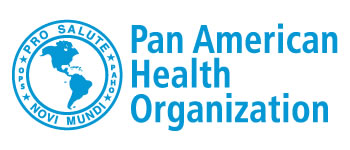Washington, D.C., September 27, 2017 (PAHO/WHO) — Dr. Carissa F. Etienne was
re-elected today for a second five-year term as Director of the Pan American Health
Organization (PAHO) by the Member States of the organization.
Ministers of health meeting at the 29th Pan American Sanitary Conference voted
unanimously to re-elect Dr. Etienne. Her candidacy, which was not contested, was
submitted by the Government of Dominica, her native country. She will assume her
second term as Director of the Pan American Sanitary Bureau, PAHO’s Secretariat,
on February 1, 2018.
In her acceptance speech, Dr. Etienne cited her “commitment to deliver to all of our
peoples, from all walks of society, a long and productive life, with quality care into our
senior years; access to quality health services without fear of impoverishment; access
to medicines and vaccines that we can afford, including effective antibiotics; freedom
from preventable diseases, with reduced exposure to disease vectors.”
She said access to sexual and reproductive health services; to healthy, nutritious
food; and to clean water and adequate sanitation were important, along with safe refuge
and adequate health care in the face of disasters and health emergencies.
“Action by the health sector alone will not be sufficient to achieve our objectives,” Dr.
Etienne said. “This is why, when I visit your countries, I meet with heads of state and
officials from across other sectors. Looking beyond government, however, I am
convinced that we must mobilize our partners in academia, civil society and the private
sector” to improve health.
WHO Director-General Tedros Adhanom Ghebreyesus, who is attending this week’s
conference, said, “I can see the unity of this region” in voting unanimously for Dr.
Etienne. “I have seen her leadership in dealing with Zika, hurricanes and emergencies
and how swiftly she reacts. We will communicate often and work well together.”
During Etienne’s first term, the countries of the Americas achieved several important
health milestones with PAHO’s support. These included the elimination of rubella and
congenital rubella syndrome in 2015 and the elimination of measles in 2016. Countries
also advanced in the elimination of neglected diseases including trachoma, Chagas
disease, and onchocerciasis (river blindness) and the elimination of mother-to-child
transmission of HIV and syphilis. PAHO Member States also approved a regional
strategy to achieve universal health, becoming the first WHO region to do so.
Under Etienne’s leadership, PAHO has supported Member States in coping with major
epidemics, including Zika, chikungunya and yellow fever, as well as disasters that have
ranged from hurricanes and catastrophic flooding to earthquakes and droughts. PAHO’s
technical cooperation has also helped countries strengthen their abilities to detect and
respond to health threats of potential international concern, under the International
Health Regulations (IHR).
As detailed in the Quinquennial Report of the Director (link below), PAHO
support during the past five years has also helped Member States expand access to
health services, strengthen regulatory systems for medicines and other health
technologies, enhance the health workforce, improve access to safe and effective
medicines, and strengthen health information systems to support evidence-based
policymaking and health interventions.
Dr. Etienne began her career as a medical officer at the Princess Margaret Hospital in
Dominica, where she eventually became the Chief Medical Officer. She has also served
in other high-level posts in Dominica, including coordinator of the National AIDS
Program, disaster coordinator for the Ministry of Health, chair of the National Advisory
Council for HIV/AIDS, and director of Primary Health Care Services.
She received her medical degree (bachelor of medicine and bachelor of surgery-
MBBS) from the University of the West Indies, Jamaica; and her master in science
(MSc) in community health in developing countries from the London School of Hygiene
and Tropical Medicine.
Dr. Etienne began her first five-year term as PAHO Director on 1 February 2013, after
being elected in September 2012. Previously, from 2008 until 2012, she had served
as assistant director-general for health systems and services at the World Health
Organization in Geneva, Switzerland.
Prior to that post in Geneva, she was assistant director of PAHO from 2003 to 2008, in
charge of five technical areas: Health Systems and Services; Technology, Health Care
and Research; Health Surveillance and Disease Management; Family and Community
Health; and Sustainable Development and Environmental Health.
During her tenures at WHO and PAHO, Dr. Etienne has led efforts to promote universal
health coverage and renew primary health care to strengthen health systems to be
more integrated and to function better. She has also spearheaded policy directions for
reducing health inequalities and advancing health for all through universal coverage,
people-centered care, the integration of health into broader public policies, and inclusive
and participatory health leadership.
She has been heavily involved in the struggle to help countries reduce the growing
burden of noncommunicable diseases through efforts to combat obesity and curb the
tobacco epidemic. She has also supported expansion of immunization programs in the
Americas, and earlier this month accepted the Measles and Rubella Initiative Champion
Award for PAHO’s work to eliminate measles and rubella from the Americas.
Dr. Etienne produced the World Health Report on “Health systems financing: the path to
universal coverage,” which was recognized worldwide for its agenda for action by all
countries to reach universal coverage and improve health outcomes. She also chaired
the International Health Partnership (IHP+) initiative, which seeks to commit partners to
work together and put into practice international principles for effective aid and
development cooperation in the health sector.









